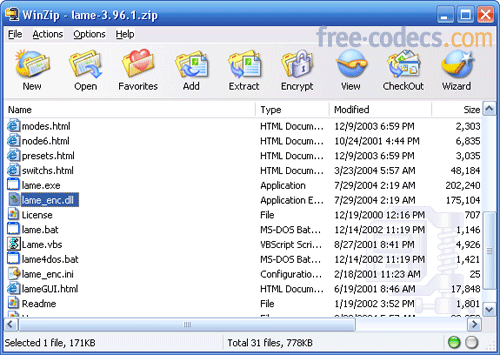- by Corey A Misch (Mischcabob) -
If you've ever downloaded MP3s from one of the other file-sharing services or legal music services like ITunes, and found that those songs sounded like crap, it's because the people who encoded those MP3s didn't know the ripping & encoding mojo you'll learn here. [No, 128-kbps is not CD-quality.]
This guide will walk you through the steps of configuring
CDex (CD Ripper/Encoder). Yes, there are dozens of them and some believe
Exact Audio Copy [EAC] is the world's best CD audio ripper. However, I chose
CDex because it's a free open source program that's easy to use and you can rip and encode audio within the same program. No sense reinventing the wheel. We'll rip your favorite songs from your favorite CDs, and encode those digital songs as high-quality MP3s, using
LAME, the world's best MP3 encoder in this example.
However, you can compress them using other lossy/lossless audio encoders/compressors i.e.
Monkey's Audio,
Musepack's sub-band codec, proprietary Advanced Audio Coding [AAC], etc. As always the choice of encoder you use will depend on these factors:
- amount of disk space you have available...
- number of CDs you own
- how good your hearing is..
- quality of your audio hardware..
- type of music you listen to...
- format compatibility requirements..
- file restrictions, etc.
LOSSY ENCODERS VERSUS LOSSLESS COMPRESSERS:
Perhaps you're familiar with digital photography. Files compressed with a lossless codec can be compared to the RAW file format, which also employs lossless compression. MP3s on the other hand can be compared to JPEGs, which offer various degrees of lossy compression. It's a known fact that the human ear has difficulty detecting a soft note played immediately after a loud one [e.g. a quiet whisper following a loud shout]. The lossy encoder will see this and discard the bits representing soft notes immediately following loud ones. Decisions regarding encoding and compression involves a trade-off balancing 3 factors:
1. Audio fidelity/quality
2. File size [affects hard drive space and Internet transfer time]
3. Time [to encode/compress]
* For the most part I will focus on using the popular lossy format (MP3) using
LAME since it offers good compatibility requirements, speedy encoding and small size.
CDEX - CD RIPPER/ENCODER:
CDex is very light weight and easy to run on any Windows system. The following should be considered before downloading
CDex, though, as it has been tested to meet at least these requirements:
- Windows 9x/Me/NT/2000/XP
- Adaptec's ASPI manager
- CD-ROM which is capable of extracting digital audio (IDE-ATAPI or SCSI drive)
- 16 MB RAM (minimum tested)
- Enough disk space to meet the needs of your project
LAME
Let's download
LAME v3.96.1. This is not the latest version, but rather the recommended one, because it is specifically coded to take advantage of the --alt-presets we want to use... which yield the best audio fidelity per unit bit used. Since 1998, many programmers have spent countless hours coding this software for you. This is why the home page is able to say:
LAME has the "speed and quality to rival all commercial competitors.” You can use the
LAME executable (
lame.exe) with
RazorLAME (or
LameXP) interface or you can use the DLL with another software (
AudioGrabber,
CDex, etc). Just matter of extracting the DLL file (
lame_enc.dll) within into the same directory as
CDex (safe to overwrite the older version).
THINGS TO GET:
-
Download CDEx 1.51 - Stable from website and install the program.
-
Download LAME MP3 Encoder 3.96.1 - Stable [lame-3.96.1.zip] and extract the DLL (
lame_enc.dll) into
CDex directory.
Table of Contents: 1. Introduction;
2. Using CDex;
3. Encoder

